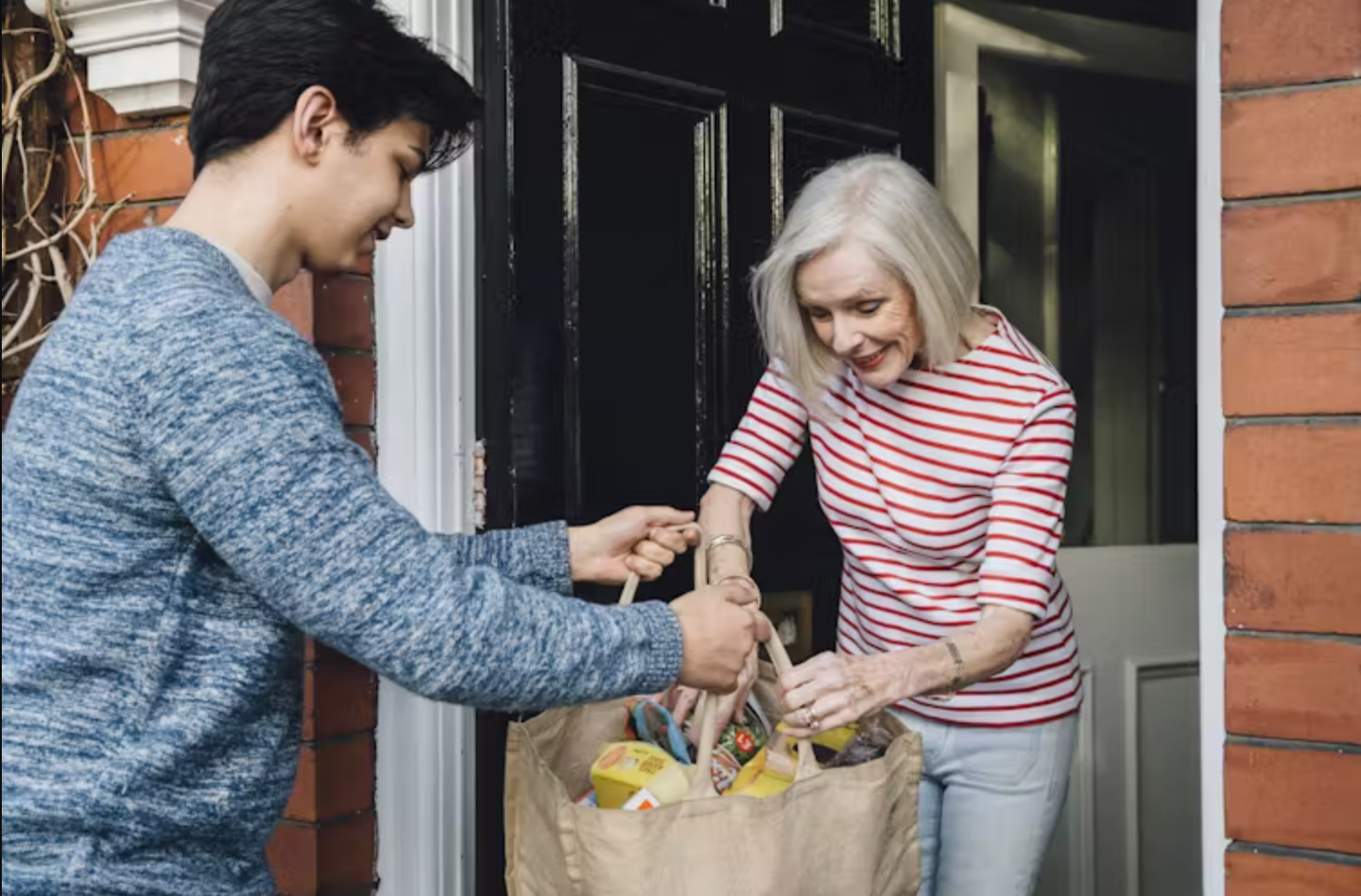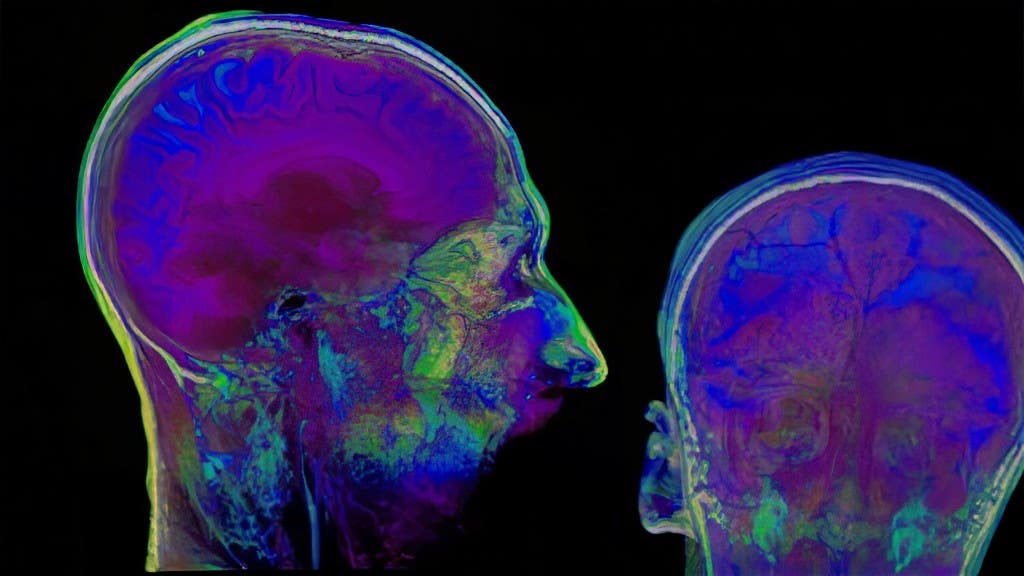The Science of Kindness: How 5 Simple Acts of Compassion Transform Our Lives
We often use the term “kindness” interchangeably with “niceness,” but what if I told you that kindness goes beyond mere pleasantries?

[Dec. 6, 2023: JD Shavit, The Brighter Side of News]
They found themselves navigating the labyrinthine aisles of the local Apple store when they were approached by a stranger. (CREDIT: Siobhan Bon Senior on Facebook)
In our fast-paced world, the concept of kindness often gets overshadowed by the rush of daily life. We often use the term "kindness" interchangeably with "niceness," but what if I told you that kindness goes beyond mere pleasantries?
It's not just about being nice; it's about a genuine and sincere way of giving your time and intention to someone else through compassion, time, generosity, and care for the betterment of helping others. Kindness can take various forms, from offering emotional support to giving your time or resources, and it can be as simple as just being there when someone needs you.
Research has shown that practicing kindness not only benefits the recipients but also has a profound impact on our own well-being. Let's delve into the science behind kindness and explore the myriad benefits it offers.
The Ripple Effect of Kindness
Kindness is like a pebble dropped into a calm pond, creating ripples that spread far and wide. It's not just about making others feel good; it can also enhance our own lives in surprising ways. Let's take a closer look at some of the incredible benefits of kindness:
Increases Happiness: One of the most immediate and noticeable effects of kindness is an increase in happiness. Kindness has been shown to boost subjective well-being and improve overall mood. The more acts of kindness we engage in, the more positive emotions we tend to experience.
Boosts Social Relationships: People who consistently practice kindness are more likely to develop genuine connections with others and feel content with their social networks. Kindness acts as a social glue, strengthening bonds and fostering a sense of community.
Promotes Oxytocin Release: Oxytocin, often referred to as the "love hormone," plays a pivotal role in social bonding and emotional well-being. Acts of kindness can trigger the release of oxytocin, which not only enhances positive self-esteem but also contributes to feelings of joy and can even improve heart health by reducing stress.
Reduces Depressive Moods: Kindness towards others can have a profound impact on our own mental health. It can boost self-confidence and energy levels, leading to an elevated mood and a reduced risk of depressive feelings.
Produces the "Helper's High": We've all heard of the "runner's high," but have you ever experienced a "helper's high"? Research has shown that performing acts of kindness activates our brain's pleasure and reward centers. This can create a rush of positive energy, leading to a sense of fulfillment and happiness.
Small Acts of Kindness, Big Impact
While it might be tempting to reserve our kindness for those we know well, the truth is that we possess the power to extend our compassion to strangers and acquaintances alike. Moreover, acts of kindness need not be grand gestures; even the simplest acts can have a profound impact.
Related Stories
Imagine yourself in a situation we've all experienced at some point: the crowded grocery store on a Friday evening. It's 5:30 p.m., and you're eager to get home, change into comfortable clothes, and enjoy a relaxing evening. Your grocery list is short—just milk and eggs. But as you navigate the bustling aisles, it feels like the entire population of New York City has converged in the same store. Impatience begins to well up within you as you wait in the seemingly endless lines.
This scenario can be incredibly frustrating, especially after a long week of work. It's easy to succumb to annoyance or discomfort, but what if you chose a different path? What if you decided to be patient, offer a smile to another weary customer, or show understanding when the cashier apologizes for the long lines? These small acts of kindness can mean more to those around you than you might imagine.
Now, let's consider another scenario. You have a close friend who is currently grappling with work-related challenges, feeling overwhelmed by her home life, and struggling to find time for self-care. In this situation, your kindness can manifest in the form of a simple text message asking how her day is going, sending warm wishes for a good week ahead, or being there as a willing listener if she needs to vent about her frustrations or problems.
List of Ways to Be Kind
Below you will find a non-exhaustive list of just a few ways you can offer your kindness to someone in need. Whether it’s your partner, a parent, or a stranger walking on the street, there is always something you can do to show your kindness.
Give a warm smile to a stranger.
Hold the door open for the folks walking in behind you.
Be there to listen to someone who could use a friend right now.
Genuinely compliment someone.
List of Ways to Be Kind (cont.)
Pick up trash (even if it’s not always yours).
Put out water bowls for roaming animals on a hot summer day.
Let someone in when they’re trying to switch into your lane.
Offer up your seat to someone who may need it on the subway or bus.
Buy some food for the person asking for money outside of the store.
Pick up something someone dropped and is having trouble reaching for it.
Put some change in an expiring meter as you walk by.
Say thank you more often.
Write someone a card telling them what you appreciate about them.
List of Ways to Be Kind (cont.)
Tip service workers.
Donate books to the neighborhood library.
Water the flowers and take care of plants.
When someone is talking about their passions, listen intently.
Ask someone how they’re doing and mean it.
Say hello and/or welcome the new neighbors.
Found a lost item? Take it to the lost and found or post it on a community page.
Write warm messages on sticky notes and leave them in places others can find them (e.g., in your child’s lunchbox, on top of a mailbox, or inside of a book).
Volunteer your time to an important cause.
List of Ways to Be Kind (cont.)
Make a donation.
Send a loving text message randomly to your family and friends.
See someone sitting alone? Invite them to sit next to you.
Help clean up without being asked.
Ask a friend hosting a party if you can bring food or help set up.
Give yourself a mental break when you’re feeling angry or sad.
Think before you speak and when you do, speak with intention.
Drop off flowers, get some food, or make a warm drink for someone who is recovering from an illness.
List of Ways to Be Kind (cont.)
Offer empathy to someone who may need it (e.g., showing up when they need support, being there to listen, giving them a hug or shoulder to cry on).
Spend time with the people you care about.
Respect how someone else is feeling even if you wouldn’t react that way.
Be just a little bit more patient.
Help with a household chore.
Share a yummy recipe with someone who may love it.
Check in on your loved ones.
Say I love you more often.
A Reminder: The Power of Small Acts
Kindness is a force that expands as we share it with others. Not only does being kind to someone else improve their psychological and physical well-being, but it also enriches our own lives in profound ways. No act of kindness is too small, and sometimes, the simplest acts can have the most significant impact. In our fast-paced world, it's easy to overlook the value of care and compassion.
So, let this article serve as a reminder that even the smallest gestures of kindness can make a substantial difference in the lives of others and in our own. Whether it's a smile to a stranger in a crowded store or a heartfelt message to a friend in need, let kindness be the guiding light that brightens our world and transforms our lives.
For more good news stories check out our Good News section at The Brighter Side of News.
Note: Materials provided above by The Brighter Side of News. Content may be edited for style and length.
Like these kind of feel good stories? Get the Brighter Side of News' newsletter.
Tags: #Good_News, #Police, #Kindness, #Compassion, #Global_Good_News, #Helping_Hand, #Grocery_Store, #The_Brighter_Side_of_News



